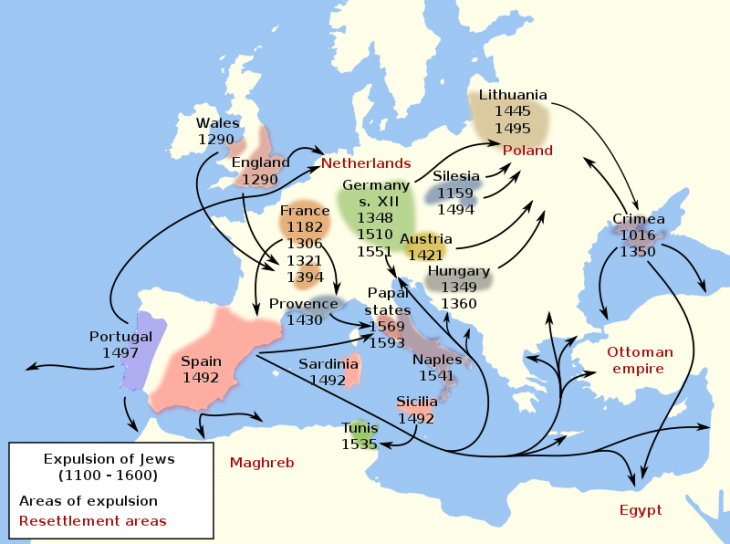
Word of the Day: Inveterate
Today’s word of the day comes to us via Number2.com, a website dedicated to providing free test preparation for students planning to take the ACT or GRE. The word is the adjective inveterate, which means “Deep-seated or firmly established” (https://www.number2.com/exams/gre/daily/word/index.cfm?s=0). Dictionary.com gives two definitions: 1. “settled or confirmed in a habit, practice, feeling, or the like,” and 2. “firmly established by long continuance, as a disease, habit, practice, feeling, etc.; chronic.” In pronunciation, the emphasis is on the second syllable.
According to www.etymonline.com, the word first appears in English in the “late 14c., ‘old,’ from Latin inveteratus ‘of long standing, chronic, old,’ past participle of inveterare ‘become old in,’ from in- ‘in, into’ (from PIE root *en ‘in’) + verb from vetus (genitive veteris) ‘old’ (see veteran). From early 15c. as ‘firmly established by long continuance;’ from c. 1500, of persons, ‘hardened, confirmed’ (in habit, etc.).”
According to OnThisDay, on this date in 1497, the Jews were expelled from Graz in Styria, Austria.
Some background: while there are stories of Jewish exiles, like the Babylonian captivity, in the Old Testament, what we now refer to as the Jewish diaspora happened after New Testament times. We know that the Romans ruled over Palestine when Jesus was doing his ministry. That domination continued after the Resurrection. In 66 CE, the Jews rebelled against their Roman masters, leading to the First Jewish-Roman War, which ended in 70 CE with the destruction of the Second Temple. Some 60 years later, after another Jewish revolt, Jews were banned from the city of Jerusalem completely. A diaspora is a dispersion of a group of people, and the Jews were dispersed throughout the Roman Empire, some to northern Europe (the Ashkenazi Jews), some to the Iberian Peninsula, North Africa, and the Middle East (the Sephardic Jews).
During the Middle Ages in Europe, the Jews were driven from a number of countries at different times:
1012: the Jews were expelled from Mainz, a city in Germany
1182: the Jews were expelled from Paris
1254: the Jews were expelled from France
1276: the Jews were expelled from upper Bavaria
1288: southern Italy
1290: England (the policy was eventually reversed by Cromwell during the Interregnum)
1306: France, again
1322: France, again
1359: France, again (I know!)
1360: Hungary
1390: Bern, Switzerland
1392: France, again
1421: the Duchy of Austria
1442: upper Bavaria, again
1478: Passau, in lower Bavaria
1492: Spain, following the conquest of the Kingdom of Granada, the last Muslim kingdom on the Iberian Peninsula
1496: Portugal
And it keeps going, so it is really not all that surprising that the Jews were expelled from a city in Austria. According to Beit Hatfutsot: the Museum of the Jewish People, “The edict claimed that Jews are to be excluded from Styria for “eternity”. Apart from a very few privileged individuals, Jews could not even pass through Styria in the 17th century. A Court decree of 1783 permitted foreign Jews to participate in markets and fairs in Linz, Graz, Klagenfurt and Laibach, but did not grant any right of permanent settlement. A change came in 1848 when Jews were permitted to stay in Graz, officially “travelling through”. Only from 1861 were Jews allowed to stay overnight. A city law of 1867 eventually granted personal freedom and equal rights to the Jews of Austria” (https://www.bh.org.il/jewish-spotlight/austria/community/graz-modern-era/).
Then, in 1938, Austria was annexed by National Socialist Germany, and the persecution of the Jews in Graz began again, in earnest. “On Kristallnacht the synagogue at the Grieskai, the offices of the community and the ceremonial hall at the cemetery in Graz-Wetzelsdorf were set on fire. 350 Jews were arrested; most of them were deported to Dachaun on November 12. The persecutions continued and 305 Jewish citizens were expelled from their homes on April 17, 1939. In the spring of 1940 the City of Graz announced itself to be ‘free of Jews.’”
Many will blame the persecution of the Jews in Christian Europe on the Church, but they would be only partially right. In Medieval Europe, it was against the law for Christians to charge interest to other Christians when lending money. If you understand economics, you might guess that, as a result of the law, Christians didn’t lend money to other Christians. But Jews could lend money, and the biggest borrowers of money from Jewish money-lenders was the aristocracy. Kings would get into deep debt because of borrowing money for fighting wars, and when it would get too much, they would simply engage in a pogrom against all Jews. Driving the Jews out of the country canceled the debt, and the king could then confiscate all of the left-behind property.
In order to convince everyone else of the rectitude of the king’s actions, rumors were spread about the Jews, like that they poisoned children or kidnapped children for ritual sacrifices or poisoned wells. For hundreds and hundreds of years, the poor in European countries were convinced that the Jews were, as a group, evil.
So, given that the hatred and fear of Jews was inveterate, is it really any wonder that the state under the National Socialists was able to convince the Germans and others that the Jews were the cause of all their problems?
The map of the expulsion of Jews from European countries comes from https://en.wikipedia.org/wiki/Expulsions_and_exoduses_of_Jews#/media/File:Expulsion_judios-en.svg.